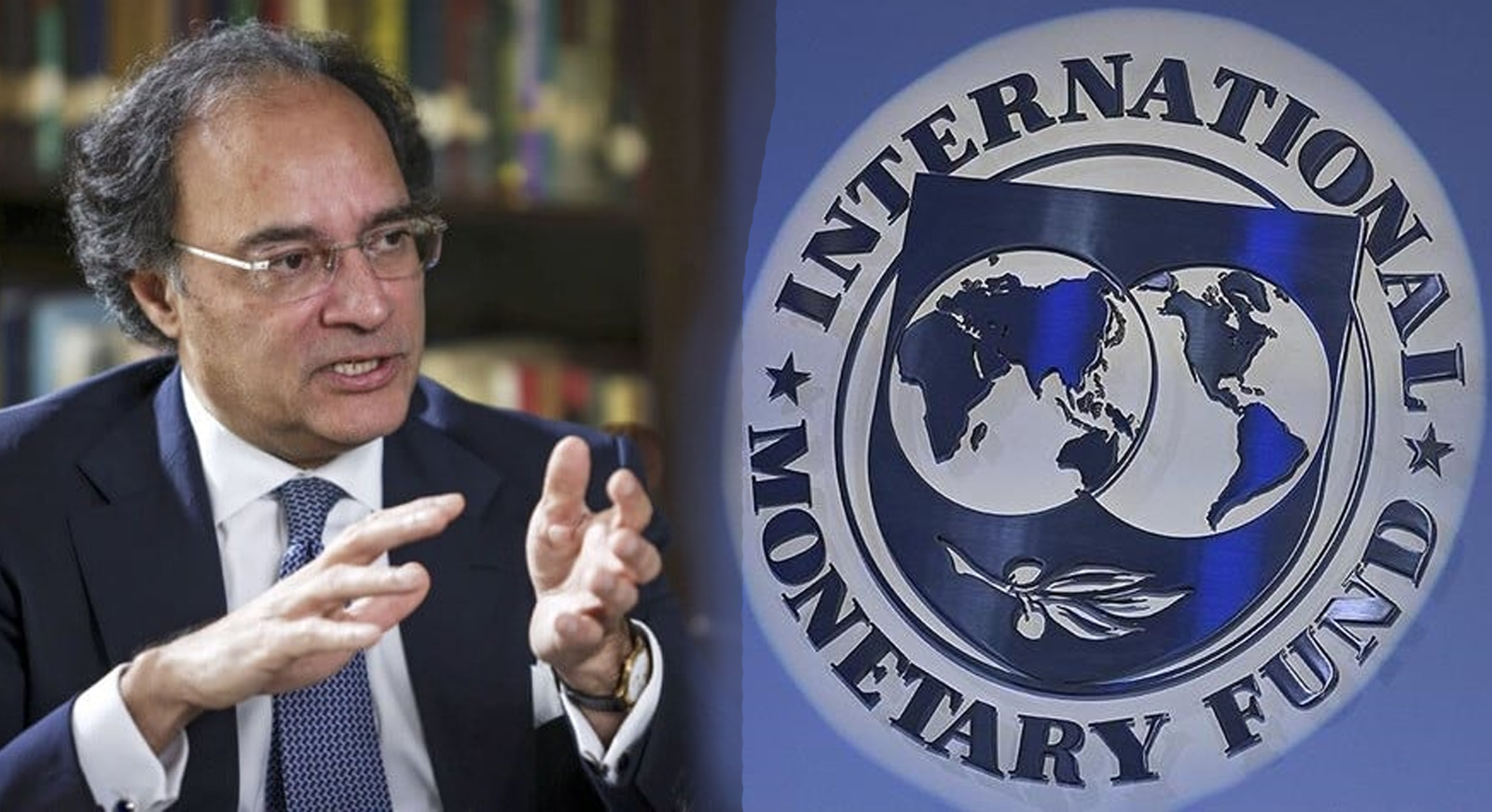PTBP Web Desk
Pakistan is on the verge of securing its 24th bailout from the International Monetary Fund (IMF), worth $7 billion, on September 25, 2024.
This development was announced by Federal Minister for Finance and Revenue, Senator Muhammad Aurangzeb, during the 21st Annual Excellence Awards hosted by CFA Society Pakistan. The announcement comes as the nation seeks to navigate economic challenges and implement key reforms to ensure long-term stability and growth.
During his speech, Finance Minister Aurangzeb expressed optimism about the upcoming IMF program. He stated that the finalization of the $7 billion program is expected at the IMF Board meeting scheduled for September 25. The minister highlighted that this could potentially be Pakistan’s last IMF program, provided the country successfully implements the necessary structural changes outlined in the agreement. “I urge everyone to read this IMF agreement, which will be made public on September 25,” Aurangzeb said, emphasizing the significance of this deal compared to previous ones.
Aurangzeb underscored the urgent need for a fundamental transformation of Pakistan’s economy. He pointed out the critical shift required from an import-based economy to one capable of achieving a GDP growth rate beyond 4 percent. To facilitate this change, he outlined several key components of the IMF agreement. One of the primary goals is to maintain a tax-to-GDP ratio above 13 percent, which would require extensive reforms in the taxation system. The government plans to digitalize the taxation process, aiming to reduce human interaction and enhance transparency.
Achieving the ambitious target of a 40 percent tax growth is central to the government’s plan. The Finance Minister announced that the government intends to introduce comprehensive measures to improve revenue collection, especially from under-taxed and untaxed sectors. Digitalization of the taxation system will play a crucial role in this effort, minimizing the chances of evasion and ensuring a more transparent and efficient process. This initiative is expected to streamline tax collection and broaden the tax base, contributing significantly to the country’s economic stability.
In addition to taxation reforms, the agreement with the IMF also includes the initiation of reforms in state-owned enterprises (SOEs) and the energy sector. These sectors have long been considered a drain on Pakistan’s economy due to inefficiencies and mismanagement. By implementing targeted reforms, the government aims to enhance the performance and financial health of these entities, thereby reducing the fiscal burden on the economy. The restructuring of SOEs and the energy sector is expected to play a pivotal role in achieving sustainable economic growth.
Aurangzeb revealed plans for further government restructuring as part of a broader effort to streamline operations and reduce costs. He mentioned that five more ministries would be identified under a rightsizing initiative. This approach aims to make the government more efficient and responsive to the needs of the economy. Furthermore, the Finance Minister advocated for the inclusion of public-private partnerships in Public Sector Development Program (PSDP) projects. This strategy is expected to leverage private sector expertise and investment, enhancing the effectiveness and impact of public sector projects.
The Finance Minister emphasized the importance of finding import substitutions to reduce the country’s reliance on imported goods. By promoting domestic production and attracting Foreign Direct Investment (FDI) in export-driven projects, Pakistan can improve its trade balance and foster economic growth. Aurangzeb highlighted the agriculture and IT sectors as key areas that will receive special attention for development. These sectors hold significant potential for export growth and can contribute to the diversification of Pakistan’s economy.
Earlier in the event, Mohammad Shoaib, CFA, Founding President of CFA Society Pakistan, shared insights into the society’s contributions to the country’s financial sector. Since its formation in 2002, Pakistan has produced over 1,000 CFA Charter-holders. Shoaib noted that the CFA charter is globally recognized as the gold standard in investment management, underscoring the importance of professional excellence in the financial industry. Sajjad Anwar, CFA, President of CFA Society Pakistan, also addressed the audience, highlighting the society’s role in promoting financial literacy and expertise in Pakistan.
As Pakistan prepares to secure the $7 billion IMF bailout, the country stands at a crossroads. The successful implementation of the agreed structural changes will be critical in determining whether this program becomes a stepping stone to financial stability or just another in a series of bailouts. By focusing on economic transformation, taxation reforms, and the revitalization of key sectors, Pakistan aims to break free from its reliance on external financial assistance and pave the way for sustainable growth.




